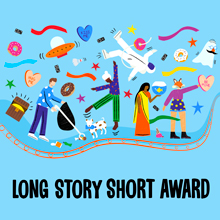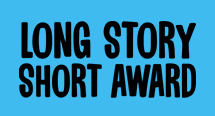Sun came out after rain.
Thought I'd never see the sun smile again.
Should have known
it wasn't
...
[+]
“Sixties Scoop” Lost and Found Identity
In the mid-late 1950s to the late 1980s, the Sixties Scoop began. The number of children taken from their families is unknown, but according to the government documents, the numbers are well over 20,000. Mostly newly born and young children were either adopted or fostered into non-Indian family homes. In the summer of July 1964, when I was a toddler at two years old, my mother put me into the Ministry of Children and Family Services Program for Indian children. As a foster child, I remained in the system until I reached the legal age of nineteen, at which point I was an adult no longer needing guardianship. In the mid-1960s, the Ministry brought me to a Danish household, and the Petersen family raised me with their three children. I noticed that I was different, and I became self-conscience of my appearance at an incredibly early age. I longed to have blond hair and blue eyes like my siblings, and I became profoundly involved in the European culture that forever changed me. I fostered the Petersen name.
Early in my life, my family identity and name had no significance. I became a citizen of the colony and lost my birth name. I experienced a loss of identity through this. I was confused, feeling that I did not belong anywhere. At thirteen, I would wear five layers of rose-coloured foundation on my face and body, and I would cover it over my chest, arms, and hands to make myself look white. In high school, I failed Physical Education because I would not wear my gym strip; the t-shirt and shorts exposed my skin, and the shamefulness of my brown skin darkened my spirits and confidence. I would skip classes and later quit high school in grade nine. The Sixties Scoop affected many children in this generation as many others like me never completed their education due to low self-esteem, lack of support and the feelings of loss and confusion of who they are.
In the early 1990s, I returned to my home territory at Canim Lake. My Status Indian registry recognized me as an Indian, and I had an identity that I had not known existed. I returned to school to get my education and learned the strong connections with our people's spirituality and cultured practices through drumming, singing and seasonal gatherings. My spirit gravitated to the drumming and songs, and through that experience, healing and wellness uplift my spirits. I created strong connections to mother nature by joining a championship canoe team, travelling, and racing across British Columbia and the U.S., volunteering my time to share my passions and love. My name was Mary Archie, and Mary Archie was known to the "People of the River" in Sto: lo Nation. The people of the nation saw me as a woman with conviction who reclaimed my identity through the connections with the traditional teachings of our culture. I was home where I could feel the spirits of the land welcoming me back where I knew I belonged.
I dedicate my story to many others in the Sixties Scoop Generation. The healing of our people's spirits lies deep within our family heritage and culture. I learned that my grandmother, Mary Archie blessed me with her name. I carry my given name with immense pride. Surnames capture a long family history showing records of who we are by the generations of strong-rooted family trees, and mine has great significance. My grandmother had nine children, in which my mother is the second eldest. Each of her children's names gives significant meaning to what family connections and reconnections to our people mean as a people of the Indian culture. I am one of the very few Aboriginal women who rediscovered my family lineage, and this should be the rights of every individual, not the state. Thank you for listening to my story.



